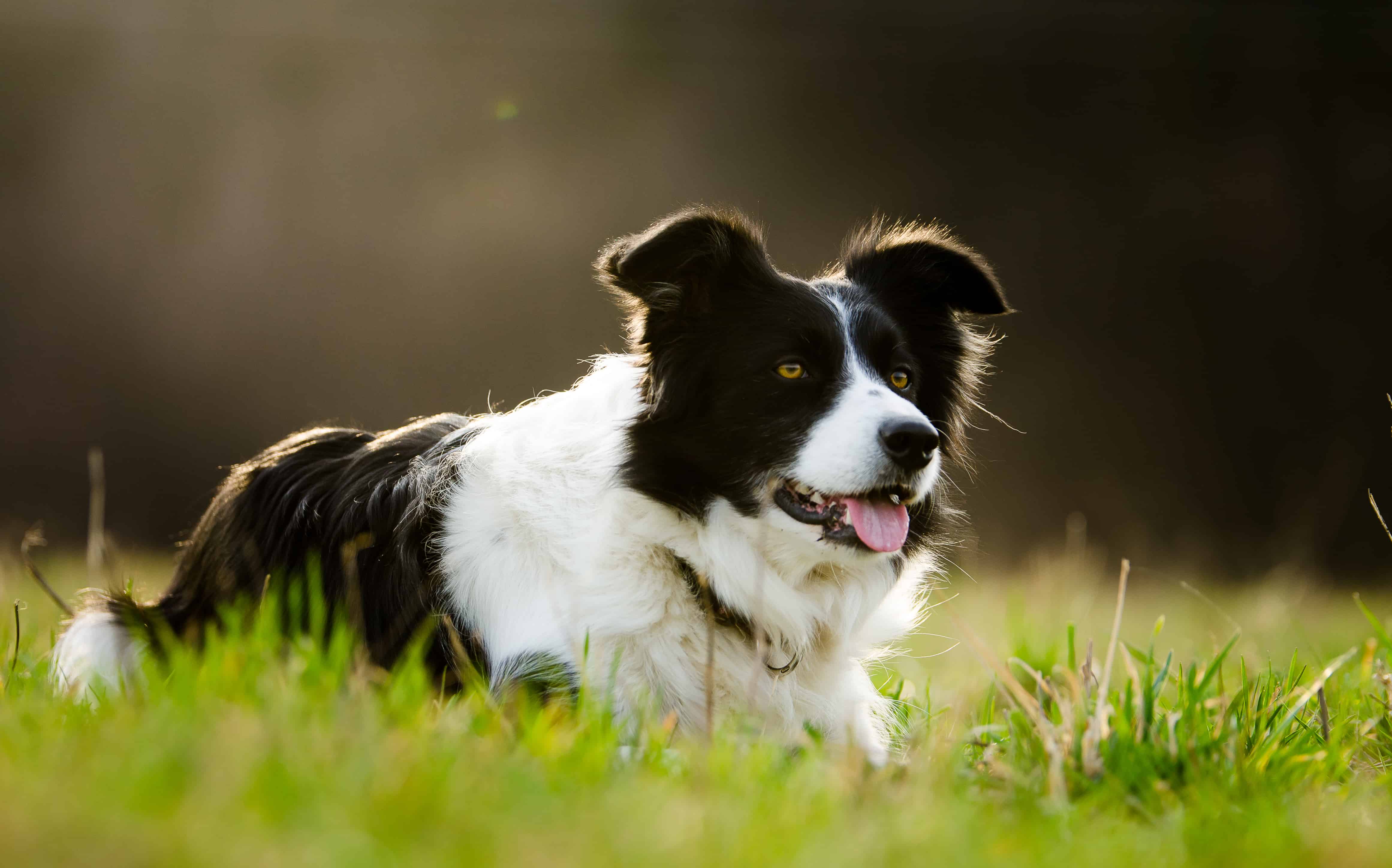Border Collies usually lose their puppy teeth between 3 and 6 months old. This is a natural process, just like in human children.
During this stage, you might notice your pup chewing more than usual. This helps relieve the discomfort as their adult teeth push through. It’s important to monitor their dental health during this period. Regular checks will ensure everything progresses smoothly.
Providing appropriate chew toys can help ease their teething pain. This phase is crucial for their oral health, so understanding what to expect can make the process easier for both you and your Border Collie. Stay informed and prepared to support your pup through this important milestone in their development.
Puppy Teeth Development
Puppy teeth development is a fascinating journey. Border Collie puppies undergo several stages during this process. Each stage plays a crucial role in their growth and health. Understanding these stages helps in caring for their dental health.
Birth To 2 Weeks
During the first two weeks, Border Collie puppies are toothless. They rely completely on their mother’s milk. Their gums are soft and delicate. This stage focuses on nutrition and growth.
2 To 4 Weeks
Between 2 to 4 weeks, puppies start teething. Tiny, sharp deciduous teeth begin to emerge. This is also known as the milk teeth phase. Puppies may start exploring solid foods. Chewing on objects becomes common. This helps relieve discomfort from teething.
Teething Begins
The teething stage is an important period for Border Collie puppies. Understanding when teething begins helps in caring for your pup. This phase marks the start of their journey into adulthood. During this time, your puppy will experience various changes. Let’s dive into the details of this crucial phase.
4 To 6 Weeks
At about 4 to 6 weeks, Border Collie puppies begin teething. This is when their baby teeth start to emerge. These tiny, sharp teeth are also known as milk teeth. They will have 28 baby teeth in total.
Milk teeth are essential for chewing and playing. They also help in learning to socialize with other puppies. During this phase, puppies may chew on objects to ease discomfort. Providing safe chew toys can help.
Signs Of Teething
Recognizing the signs of teething can make this process easier. Border Collie puppies display several behaviors during teething.
- Increased Chewing: Puppies chew on objects to soothe their gums.
- Drooling: Excessive drooling is common during teething.
- Swollen Gums: Gums may appear red and swollen.
- Whining: Puppies might whine due to gum discomfort.
These signs indicate that your Border Collie is teething. Providing appropriate care can help ease their discomfort.
| Age | Teething Stage |
|---|---|
| 4 to 6 Weeks | Milk teeth begin to appear |
In conclusion, understanding when and how Border Collies lose their puppy teeth can help you support your pup through this important phase. Keep an eye out for the signs and provide the necessary care.
First Teeth Lost
The process of losing puppy teeth is an important milestone for Border Collies. It marks the transition from baby teeth to permanent adult teeth. Understanding when and how this process occurs can help you better care for your furry friend.
8 To 12 Weeks
Border Collie puppies start losing their first teeth between 8 to 12 weeks of age. This phase can be a bit uncomfortable for them. You might notice your puppy chewing on things more often. This is a normal part of their development.
How To Identify
Identifying when your Border Collie is losing their first teeth is simple. Watch for small teeth on the floor or in their bedding. These teeth are usually tiny and white. Your puppy might also have some bleeding gums.
- Increased chewing behavior
- Loss of small, white baby teeth
- Possible bleeding gums
During this period, provide your puppy with safe chewing toys. This can help ease their discomfort and prevent them from chewing on furniture or other household items.
| Age | Teeth Development Stage |
|---|---|
| 8 to 12 Weeks | First teeth lost |
| 12 to 16 Weeks | More baby teeth fall out |
| 6 Months | Most adult teeth appear |
Knowing the timeline and signs of losing puppy teeth helps you support your Border Collie’s dental health. Keep an eye on their chewing habits and provide proper dental care to ensure their permanent teeth come in strong and healthy.
Transition To Adult Teeth
The transition from puppy teeth to adult teeth is an important stage in a Border Collie’s development. This period usually begins when they are around 12 weeks old and continues until they are about 7 months old. During this time, your Border Collie will lose their baby teeth and grow a full set of adult teeth. Understanding this process can help you support your pet and manage any issues that arise.
12 To 16 Weeks
At around 12 weeks, your Border Collie’s baby teeth will start to fall out. This is a natural process that prepares their mouth for adult teeth. These baby teeth, also known as deciduous teeth, are replaced by permanent teeth, which are stronger and better suited for an adult dog’s needs.
During this period, you might notice that your puppy is chewing more than usual. This is because the teething process can be uncomfortable. Providing appropriate chew toys can help soothe their gums and keep them from chewing on household items.
Common Issues
While the teething process is generally smooth, some puppies may experience common issues. Here are a few to watch out for:
- Retained Baby Teeth: Sometimes, a baby tooth doesn’t fall out as it should. This can cause problems if the adult tooth grows in beside it. If you notice this, consult your vet.
- Discomfort and Pain: Teething can be painful. Your puppy may show signs of discomfort, such as whining or refusing to eat. Softening their food or providing soothing chew toys can help.
- Chewing on Inappropriate Items: Puppies may chew on shoes or furniture. Redirect them to appropriate chew toys and puppy-proof your home to prevent damage.
It’s essential to monitor your puppy’s dental health during this transition. Regular vet check-ups can ensure that their teeth are developing correctly and address any issues early on.
Complete Adult Teeth
As Border Collies grow, their teeth undergo significant changes. By the time they reach adulthood, they will have a full set of strong, healthy teeth. These complete adult teeth are vital for their overall health and well-being. Understanding when Border Collies lose their puppy teeth and how to care for their new adult teeth is important for every dog owner.
6 Months
Border Collies typically start losing their puppy teeth around three to four months old. By six months, most Border Collies will have lost all their puppy teeth. They will usually have a full set of adult teeth by this age. This period can be uncomfortable for your pup. They might chew on things more often to soothe their gums. Providing chew toys can help ease their discomfort. Monitor their teeth during this time to ensure there are no issues.
Dental Care Tips
Good dental care is crucial for Border Collies with their new adult teeth. Brush their teeth regularly to prevent plaque buildup. Use a dog-friendly toothbrush and toothpaste. Dental chews can also help maintain their oral hygiene. Regular vet check-ups are essential. The vet can check their teeth and gums for signs of disease. Encourage your Border Collie to chew on appropriate toys. This helps keep their teeth clean and strong. Avoid giving them hard objects that can break their teeth. Proper dental care will ensure your Border Collie has a healthy smile.

Credit: www.vidavetcare.com
Managing Teething Pain
Managing teething pain in Border Collies can be challenging. Puppies often experience discomfort during this phase. Chewing helps ease their pain, but they need the right tools. Safe chew toys and home remedies can provide relief.
Safe Chew Toys
Chew toys can soothe teething pain. Choose toys designed for puppies. They should be durable yet soft. Toys with different textures can provide extra relief. Avoid toys that are too hard. They can damage your puppy’s teeth. Rotate the toys to keep your puppy interested. Supervise your puppy to ensure safe chewing.
Home Remedies
Home remedies can complement chew toys. A cold washcloth is a simple solution. Wet a cloth, twist it, and freeze it. Let your puppy chew on the cold cloth. The cold helps numb the gums. Another option is ice cubes. Some puppies enjoy chewing on ice. Supervise them to avoid choking. You can also freeze broth into cubes. This makes a tasty and soothing treat.
Importance Of Veterinary Checkups
Ensuring your Border Collie has regular veterinary checkups is crucial. These checkups help monitor their health, including their dental development. Losing puppy teeth is a natural process. Yet, issues can arise. A vet can spot problems early, ensuring your pup’s teeth are healthy.
Regular Exams
Regular exams help keep your Border Collie’s teeth in check. Vets can see if the teeth are falling out as they should. They check for any signs of dental issues. Regular visits allow your vet to catch problems early. This keeps your pup’s mouth healthy and pain-free.
Potential Problems
Potential problems may arise during the teething process. Sometimes, puppy teeth don’t fall out as expected. This can cause pain and infection. Vets can remove stubborn teeth if needed. They also check for signs of gum disease. Regular checkups help prevent these issues from getting worse.

Credit: collieconsultant.co.uk
Long-term Dental Health
Maintaining your Border Collie’s dental health is crucial. Healthy teeth and gums prevent pain and disease. Regular care ensures your dog stays happy and active. Start dental routines early for best results.
Daily Brushing
Daily brushing is important for your Border Collie’s teeth. Use a toothbrush designed for dogs. Pick a dog-friendly toothpaste. Human toothpaste can harm your dog. Brush gently to remove plaque and food particles. Make brushing a positive experience. Offer treats and praise. This helps your dog enjoy the routine.
Professional Cleaning
Even with daily brushing, professional cleaning is necessary. Veterinarians clean your dog’s teeth thoroughly. They remove tartar and check for dental issues. Schedule cleanings once a year. Some dogs may need more frequent cleanings. Professional care keeps your dog’s mouth healthy.

Credit: a-z-animals.com
Frequently Asked Questions
When Do Border Collies Start Losing Puppy Teeth?
Border Collies typically start losing their puppy teeth around 3 to 4 months old. This process continues until they are about 6 months old.
How Long Does Teething Last For Border Collies?
Teething for Border Collies generally lasts for about 3 months. The process usually ends when they are around 6 months old.
What Are Signs Of Teething In Border Collies?
Signs of teething in Border Collies include increased chewing, drooling, and occasional irritability. They may also have swollen gums.
Should I Be Concerned About Teething Pain?
Teething pain is normal, but if your Border Collie seems overly distressed, consult your vet. Use chew toys to ease discomfort.
Conclusion
Puppy teeth loss in Border Collies is a natural process. It typically happens around 3 to 6 months. Proper care and attention ensure a smooth transition. Regular vet visits help monitor their dental health. Offer safe chew toys to ease discomfort.
Maintain good oral hygiene to prevent issues. Understanding this phase supports your puppy’s well-being. Happy, healthy teeth lead to a happy, healthy dog. Enjoy this special time with your Border Collie pup!